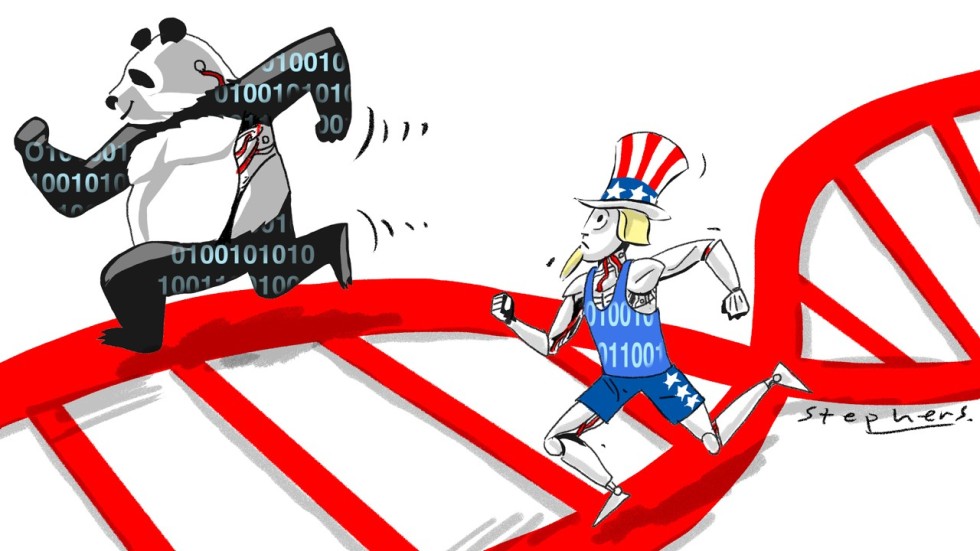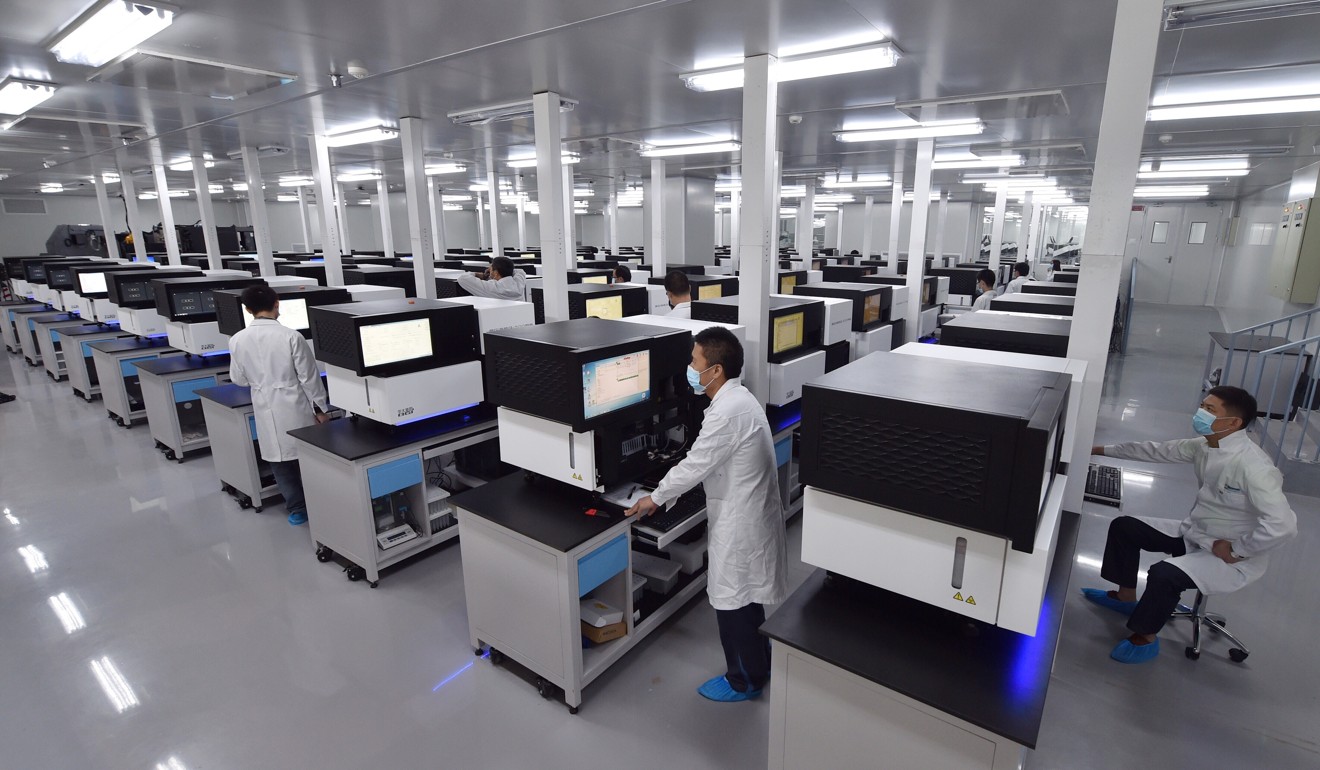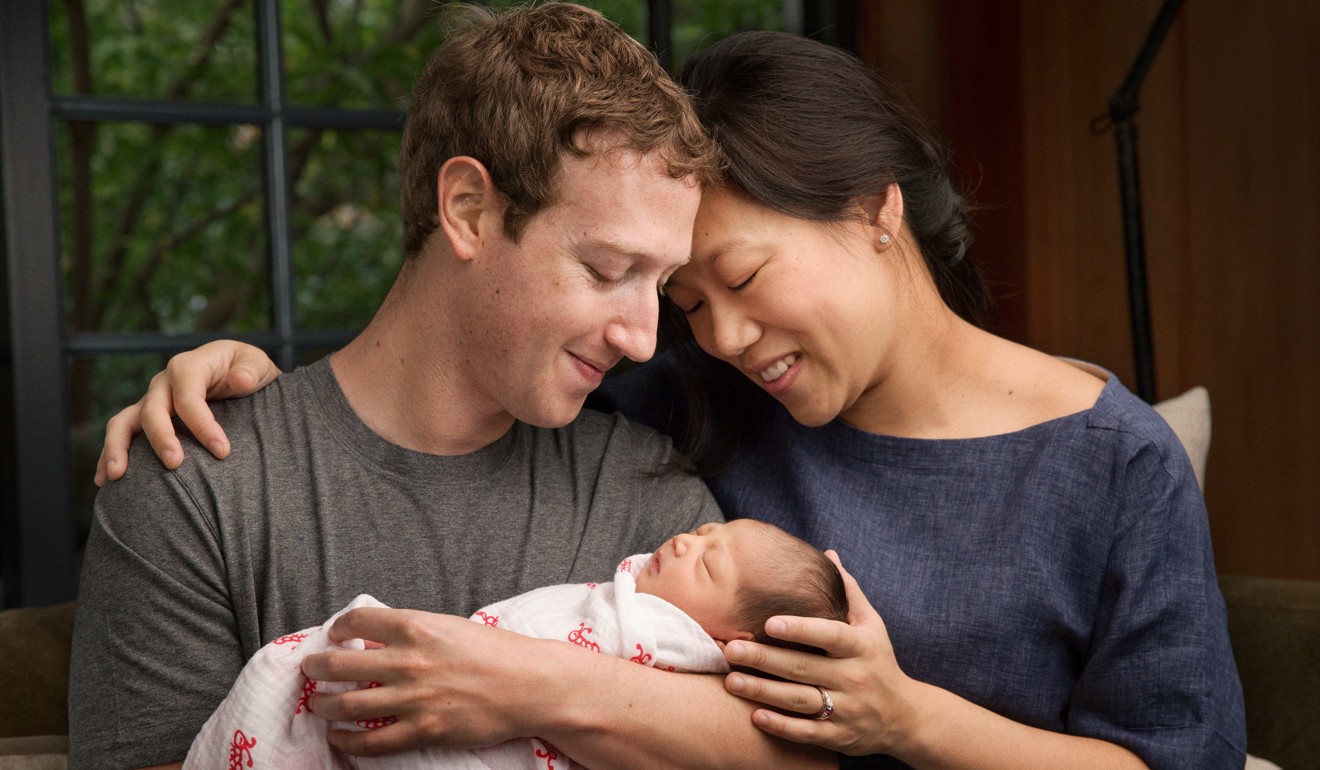Eleonore Pauwels
 Eleonore Pauwels says the world should pay attention, as China achieves dominance in AI and biotech. Bio-intelligence is more than mapping genomes: whoever controls the resources may influence the well-being of entire populations
Eleonore Pauwels says the world should pay attention, as China achieves dominance in AI and biotech. Bio-intelligence is more than mapping genomes: whoever controls the resources may influence the well-being of entire populations
China is fast becoming the next AI-DNA powerhouse, threatening Silicon Valley’s long-standing global edge in bio-intelligence. As other countries form alliances with the two giants, the world will be divided into rival tech blocs. This new geopolitical order – depicted in Kai-fu Lee’s latest book, AI Superpowers – will not be shaped by US President Donald Trump’s trade wars, but by competition to control the artificial intelligence and biotech industries.
OPINION
The world is already on the threshold of this new era. China has invested US$9 billion in expanding its AI and biotech capabilities within and beyond its borders, to take a great leap forward in the commodification of a resource that might be the new oil: namely, our biological and genomic data.
Equipped with AI programs that can decode the genetic profiles of entire populations and ecosystems, forms of “cybercolonisation” are increasingly likely, along with potentially massive shifts in geopolitical power. In fact, China and Silicon Valley seem poised for a race to control our biological data.
AI is increasingly used to map and measure our biological functions. Many corporate AI platforms are already privy to our online behaviour, relationships, health and emotional states – but, increasingly, they will also acquire baseline information about our vital signs, organs and genomes.
Our cellphones can analyse shifting speech patterns to diagnose Parkinson’s disease. A company in China relies on wireless sensors to analyse workers’ brainwaves and monitor their emotional health. IBM Frontiers Institute is developing intelligent implants and nanobots to go inside the body for exploratory imagery and to report on blood-sugar levels.
In large-scale, low-cost gene sequencing, China already surpasses the US. The world’s largest genetic research centre, the BGI based in Shenzhen, holds DNA samples of an estimated 40 million people. Formerly known as the Beijing Genomics Institute, the company is on a quest to map the DNA of all known plant and animal species on Earth.
BGI, which provides sequencing services in more than 60 countries, is betting big on the future: reading our genes, on a global scale, to crack famine, illness, evolution and the secrets of human intelligence.

In 2013, BGI dealt a blow to Silicon Valley when it bought Complete Genomics, a DNA sequencing company in California. BGI bought sequencing machines from another American firm, Illumina, but could now develop its own advanced machines.
China excels at capturing markets and data sets. The Chinese company WuXi AppTecwas an early investor in 23andMe, the popular US direct-to-consumer genetic testing company, and now has a foot in China and the US, and access to an extensive library of genomes from both markets.
There are, of course, thriving AI and biotech platforms in Silicon Valley. Google and Amazon offer powerful cloud computing platforms to the largest genomics studies conducted in the US and beyond. 23andMe sits on a trove of genetic and physiological data from more than five million customers around the world. The Chan Zuckerberg Initiative, funded by US$13 billion in Facebook shares, pursues ambitious goals such as mapping out every cell in the human body and ending or managing all diseases “in our children’s lifetime”.
Yet, Silicon Valley sorely lacks a coordinated global strategy for AI and emerging digital technologies. While the Trump administration has stripped down the White House’s Office of Science and Technology Policy, the Chinese government has outlined a “military-civilian integration development strategy” to harness AI and biotech.

China has deployed massive resources to develop its own strategic technology sectors in close collaboration with national champion companies like Baidu, Alibaba, and Tencent. Beijing has also kept the Silicon Valley giants out of the Chinese market for years. Since 2017, a new cybersecurity law has required all “network operators” – Chinese and foreign – to store data on servers within China and allow government officials to access it. And in the first half of 2018, Chinese venture capital funds invested US$5.1 billion in US biotech companies, surpassing the US$4 billion invested in all of 2017.
Control of bio-intelligence means far more than just mapping: whoever has a monopoly on the resources may well be able to influence the well-being of entire populations and impact innovation in allied countries.
In economics and medicine, the implications are huge. A hi-tech country could “hack”, or quietly capture, another country’s bio-economy – its genomes, microbiomes and ecosystems – for its own economic growth. Inequality will rise between countries that are tech leaders and those that are tech takers, if skills are not transferred and financial benefits are not shared.
The consulting firm Frost & Sullivan predicts that AI technologies will generate US$6.7 billion in global revenue from health care by 2021, compared with US$633.8 million in 2014. For instance, liquid biopsies – blood tests to diagnose cancer – could set off the next gold rush in health care. By 2025, between 100 million and two billion human genomes could be sequenced, an effort expected to exceed the computing challenges of running YouTube and Twitter.
Never before has our species been equipped to acquire biological data on such a grand scale. Such capacities may raise ambitions to not only monetise, but also weaponise, ever more bio-intelligence.
Indeed, AI and biotech research is a strategic piece of a country’s security arsenal. It drives development in “medical countermeasures”, the vaccines and drugs needed to protect against a bioterrorist attack.
Algorithms are becoming a crucial tool for detecting potential threats from known and unknown DNA sequences. Applying AI deep learning to genomic data sets could help geneticists master genome editing and optimise human health; it could also lead to military applications.
China is planning to achieve dominance in bio-intelligence. The question is whether other countries will open their eyes to this and try to gain a competitive edge.
No comments:
Post a Comment